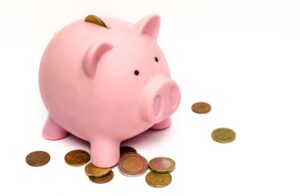
You do not have to be rich to get involved in the share market these days with online share market platforms such as Sharesies and Hatch which provide a gateway to novice investors.
If you are from a country other than New Zealand or Australia then Robinhood from the States is a share market platform which you can use.
Here are my tips to follow if you are a complete beginner.
Tip 1: Shares go up and down
The value of your shares will fluctuate; that is the nature of the markets. It is important not to focus on your shares but rather on saving and letting the markets take care of itself because if you are strategic with your investments then falling markets will not scare you.

Tip 2: Know why you are investing
Have a clear plan on what the money’s for. Is it for your retirement, a mortgage, a vehicle, or as a rainy day fund.
Tip 3: Invest money you can afford to lose
Money which is invested in the share market should only be money which you can fully afford to lose because of the volatile nature of shares, however, you can choose a conservative funds when investing in managed funds. It all depends on your time frame. If the money is needed in the short term then investing in conservative funds will be your best option.
Tip 4: Know your risk profile
Your risk profile is the level of risk you are prepared for or are willing to take. If you are young you are able to take more risks because you have more time to recover from financial setbacks.
Tip 5: Not a substitute for kiwisaver
Online investing platforms such as Robinhood, Sharesies, Hatch and the like should not be a substitute for your retirement fund, in New Zealand that is called Kiwisaver)
Tip 5: Not a get rich scheme
Investing in the share market is a long term game; it is not a get rich quick scheme. Don’t be taken in by the stories of those who have made a share market killing because you never get to hear about the losses and it is likely that people who made that killing will spend years trying to make another killing and lose all their gains.
Tip 6: Patience is a virtue
It is time and not timing which is the key to making money in the share market. Patience investors are rewarded handsomely if they stay onboard rather than jump ship during stormy seas.
Tip 6: Do your homework
It is important to do your homework on the various companies you plan to invest in and not just invest haphazardly. The alternative is to invest in managed funds; the fund manager will choose the companies for you.
Tip 7: Take responsibility
Don’t blame anyone for your mistakes, take responsibility for them and learn from them; that way you will become a better investor.
Tip 8: Get right advice
Listen to the right people. Prior to the Global Financial Crisis, some financial experts were saying “The high interest rates do not reflect the higher risk investors of finance companies are taking on.”
Well guess what happened? A number of them folded.
www.robertastewart.com
Start investing on a shoestring
Sharesies makes it possible for anyone to get into buying and selling shares. It is an online share market platform where you have the option of purchasing shares in individual companies or in various funds (managed/mutual funds). You can even start with $5. This is a no brainer because it gives investors young and not so young the chance to improve their financial literacy. There is certainly no substitute for experience when it comes to learning and this is applicable to everything else, not just investing.
Join sharesies here: https://sharesies.nz/r/377DFM
Disclaimer: I may receive a small sign up bonus if you join sharesies.




